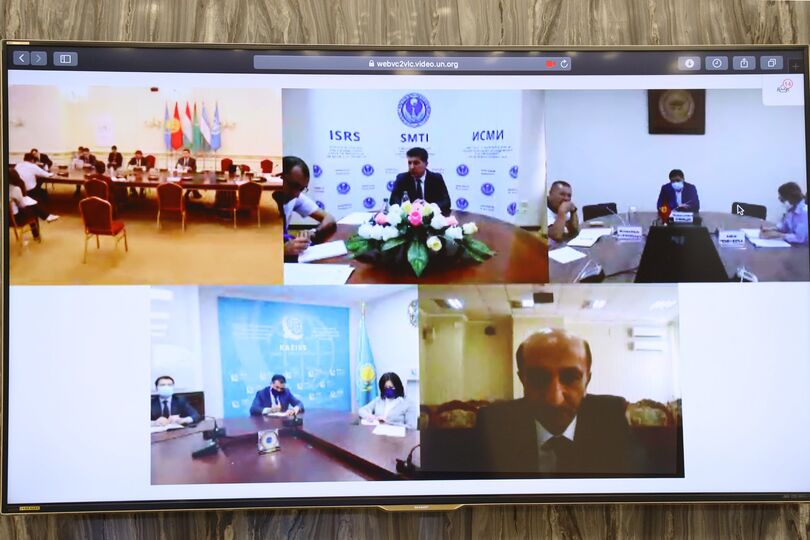On 22 June, SCO Secretary-General Vladimir Norov attended a videoconference organised at the initiative of the UN Regional Centre for Preventive Diplomacy for Central Asia for representatives of strategic studies institutes in Central Asian countries.
The event brought together the leaders of the Kazakhstan Institute for Strategic Studies under the President of the Republic of Kazakhstan, the National Institute for Strategic Studies of the Kyrgyz Republic, the Centre for Strategic Research under the President of the Republic of Tajikistan and the Institute for Strategic and Regional Studies under the President of the Republic of Uzbekistan, as well as representatives of the Foreign Ministry of the Republic of Turkmenistan.
They exchanged views on the implementation of the UN General Assembly resolution "Strengthening regional and international cooperation to ensure peace, stability and sustainable development in the Central Asian region" (22 June 2018) and agreements reached at the second consultative meeting of the heads of state of Central Asia (29 November 2019), as well as on the strengthening of cooperation in key areas in the post-pandemic era.
The Secretary-General noted the relevance of holding the videoconference, given the continuing pandemic. In his opinion, the effects of this public health crisis can also be seen in the economy, the environment, education and culture. The pandemic had a dramatic impact on the system of international relations in general as well.
Vladimir Norov believes that the key solution to the current problem lies in overcoming political confrontation globally and regionally, and abandoning nationalist and populist ideas and protectionism.
"It is multilateralism and diplomacy that should play the decisive role in countering the pandemic and restoring the world economy. At the very outset of the pandemic, the SCO made a statement calling on the international community to enhance cooperation within the World Health Organisation to protect public health at the regional and international levels," stressed the Secretary-General.
As for Central Asia, the Secretary-General underscored that it constitutes the "nucleus of the SCO and a priority area of its activity."
SCO member states support the efforts of the Central Asian countries to deepen their cooperation in a variety of areas and welcome the adoption of the above-mentioned UN General Assembly resolution on Central Asia.
Vladimir Norov stated that the political dialogue between Central Asian countries has become noticeably stronger in recent years, which is conducive to regional cooperation in the interests of unlocking the region's potential in transport, hydropower engineering and tourism. The challenges and threats facing Central Asian countries are common to the entire world community, including the SCO space. Their overcoming largely depends on partners' readiness to work out shared approaches to resolving development and security issues, including countering the unfavourable effects of the pandemic.
In conclusion, the Secretary-General pointed out the appropriateness of holding such expert dialogues and underscored the importance of preventive diplomacy and the significant role of scientific expertise in studying pressing regional problems.
Head of the UN Regional Centre for Preventive Diplomacy for Central Asia Natalia Gherman said that the meeting of heads of strategic studies institutes in Central Asian countries is a useful forum for discussing topical regional issues.
She emphasised that the aforementioned UN General Assembly resolution had made a meaningful contribution to promoting mutual trust and neighbourliness between Central Asian states. In essence, the document was a consolidated response of the Central Asian countries both to common regional problems as well as to the challenges and threats of globalisation.
Natalia Gherman thanked the SCO Secretary-General for supporting the UNRCCA's activity and pointed out the importance of the SCO position on the role of multilateralism and diplomacy during the pandemic.
In her view, the SCO and the United Nations have established multifaceted interaction, which reflects, in particular, the relevant agenda of cooperation between Central Asian countries.
Representatives of Central Asian research centres also spoke about regional development issues and putting into practice the above UN resolution. They noted the importance of developing both bilateral and regional cooperation to mitigate the socioeconomic impacts of the pandemic. They also provided data on the current situation in tourism, healthcare and transport, which were greatly affected by the spread of COVID-19.
